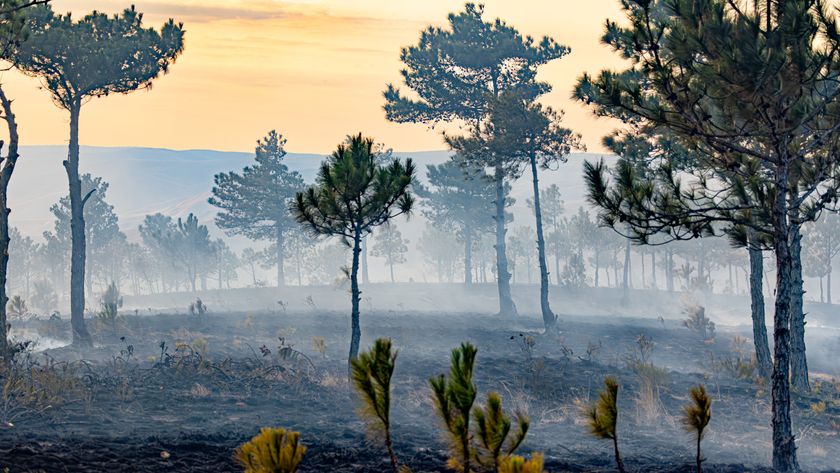Vibracore machine
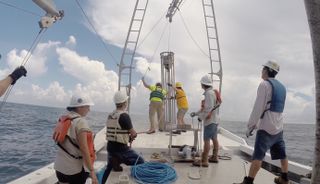
A team from Lousiana State University lower a vibracore machine into the Gulf to capture ancient sediments. The results showed that this forest resembled a North Carolina forest of today, rather than a Gulf Coast forest. In essence, it was a forest designed for a colder climate.
Sediment cores
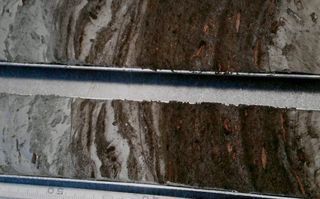
Sediment cores from the Underwater Forest showed that this forest resembled a North Carolina forest of today, rather than a Gulf Coast forest. In essence, it was a forest designed for a colder climate.
Swimming through
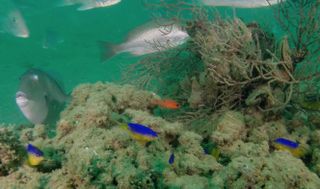
A triggerfish, stage right, eyes a group of juvenile blue and yellow cocoa damselfish. Also known as beau gregories, the small fish transform to a cocoa color when adults.
Knees of the cypress
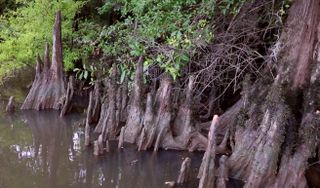
Cypress knees are believed the help the trees stay upright in the soupy mud at the bottom of the great Southern swamps.
Barren landscape
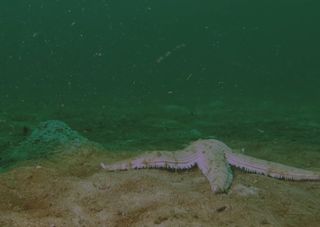
Most of the bottom of the Gulf of Mexico is a barren desert, inhabited by starfish and jellyfish and little else.
Sole sealife

Most of the bottom of the Gulf of Mexico is a barren desert, inhabited by starfish and jellyfish and little else.
Massive stumps

Stumps the size of garbage cans and a log as big around as a telephone pole in this tableau of life on the living reef that the ancient forest has become.
Sign up for the Live Science daily newsletter now
Get the world’s most fascinating discoveries delivered straight to your inbox.
Hurricane Ivan
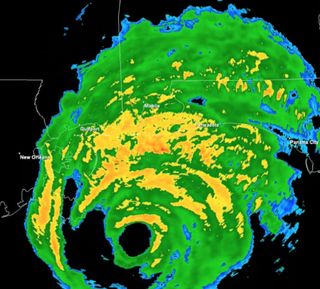
Hurricane Ivan, seen here as it came ashore, passed right over the spot where the Underwater Forest was discovered.

Tia is the managing editor and was previously a senior writer for Live Science. Her work has appeared in Scientific American, Wired.com and other outlets. She holds a master's degree in bioengineering from the University of Washington, a graduate certificate in science writing from UC Santa Cruz and a bachelor's degree in mechanical engineering from the University of Texas at Austin. Tia was part of a team at the Milwaukee Journal Sentinel that published the Empty Cradles series on preterm births, which won multiple awards, including the 2012 Casey Medal for Meritorious Journalism.

